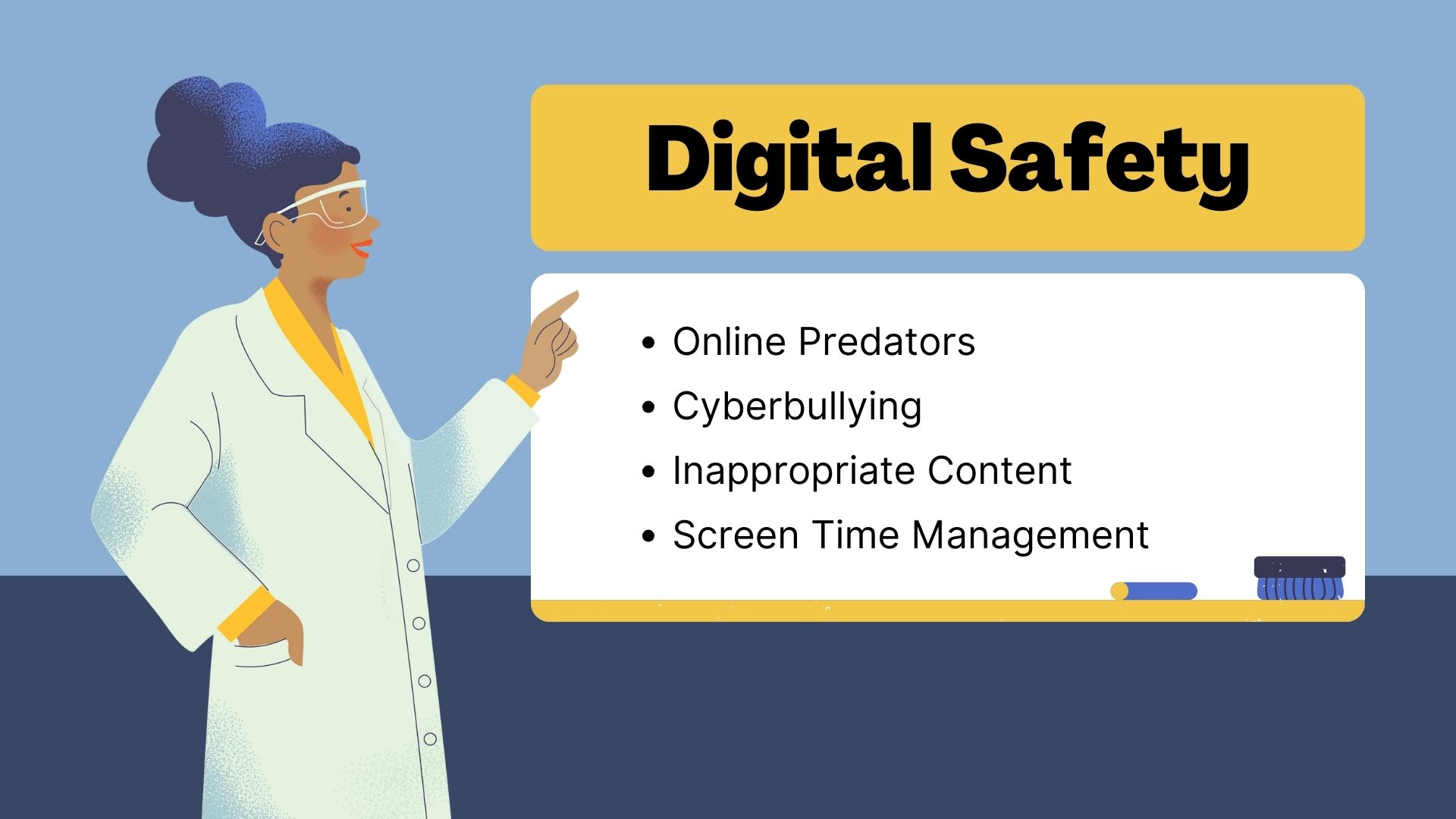
Open Communication: Maintain open and honest communication with your child. Encourage them to share their online experiences and concerns. Set Guidelines: Establish clear rules and expectations regarding screen time, social media usage, and online behavior. Educate Yourself: Stay informed about the latest apps, websites, and online trends. Use Parental Controls: Consider using parental control software to monitor and manage your child's online activities, especially for younger children. Teach Online Etiquette: Educate your child about the importance of respectful online behavior. Be a Role Model: Model responsible and respectful online behavior to set a positive example for your child.
Protect Personal Information: Do not share personal information like your full name, address, phone number, school name, or other sensitive details with strangers online. Be Cautious with Social Media: Set strong privacy settings on your social media profiles. Don't Engage in Cyberbullying: Treat others with respect online and never engage in cyberbullying or harassment. Think Before You Click: Be cautious about clicking on links, opening attachments, or downloading files from unknown sources. Respect Online Privacy: Don't invade someone's privacy by sharing their personal information without consent. Verify Information: Be critical of the information you find online and verify facts from reputable sources before sharing them.
Stay Informed: Familiarize yourself with the online activities and interests of the children in your care. Supervise Younger Children: Closely supervise the online activities of younger children and help them navigate the internet safely. Be a Trusted Adult: Let the children know they can come to you with any online concerns. Support Parental Rules: Enforce the rules and guidelines for online usage set by the child's parents. Encourage Balanced Activities: Promote a balance between screen time and other activities such as outdoor play, reading, and spending time with family.
Open Communication: Have open, honest, and ongoing communication with your child about their online activities. Educate Your Child: Teach your child about potential risks and dangers of the internet. Set Age-Appropriate Boundaries: Establish rules and guidelines for internet and device usage. Use Parental Control Software: Consider using parental control software to monitor and manage your child's online activities. Teach Online Privacy: Ensure your child understands the importance of protecting their personal information online. Social Media Awareness: Help your child set privacy settings and review friend lists on social media.
Cyberbullying Awareness: Teach your child about cyberbullying and encourage reporting. Online Etiquette: Encourage good online etiquette and emphasize treating others with respect. Screen Time Balance: Promote a healthy balance between screen time and other activities. Model Responsible Use: Model responsible internet and device use. Stay Informed: Keep up-to-date with apps and websites your child uses. Monitor Online Friends: Encourage connecting only with people they know. Supportive Environment: Let your child know they can come to you with problems or uncomfortable situations online.
Online safety is a shared responsibility, and by working together, parents, students, and guardians can create a safer and more positive online environment for young people. In the digital era, it is foremost for parents to take precautions to ensure their child's safety and well-being online.
